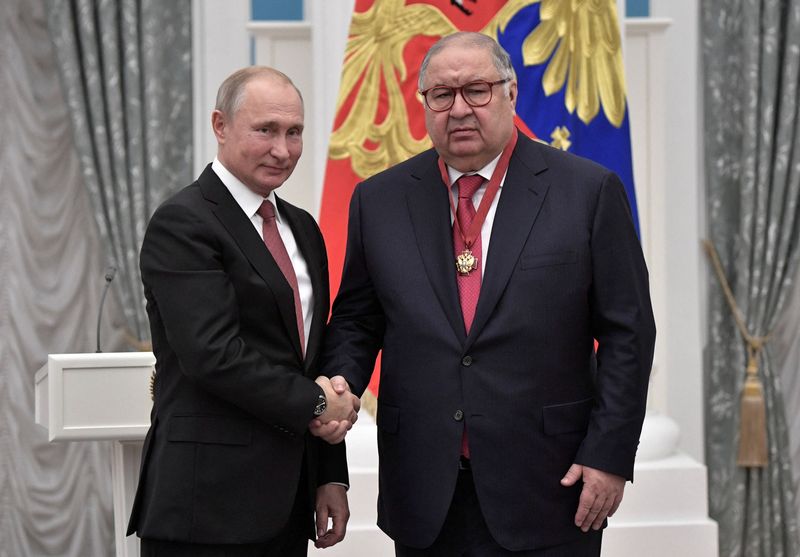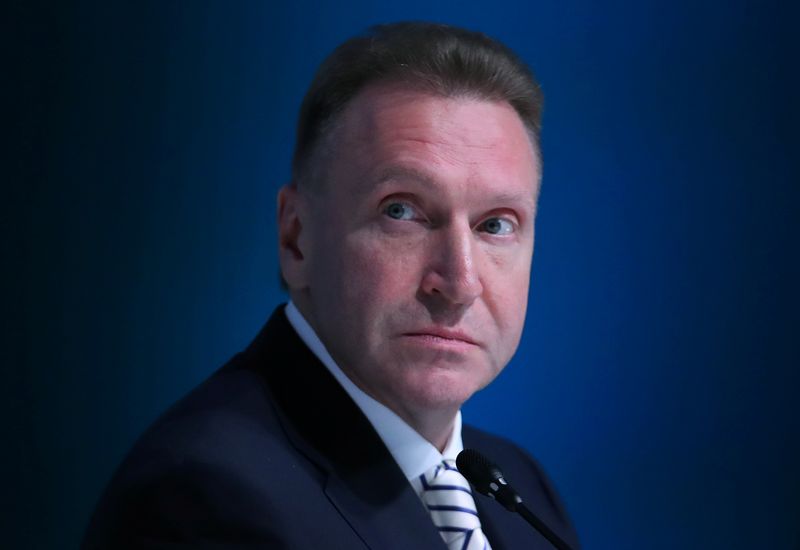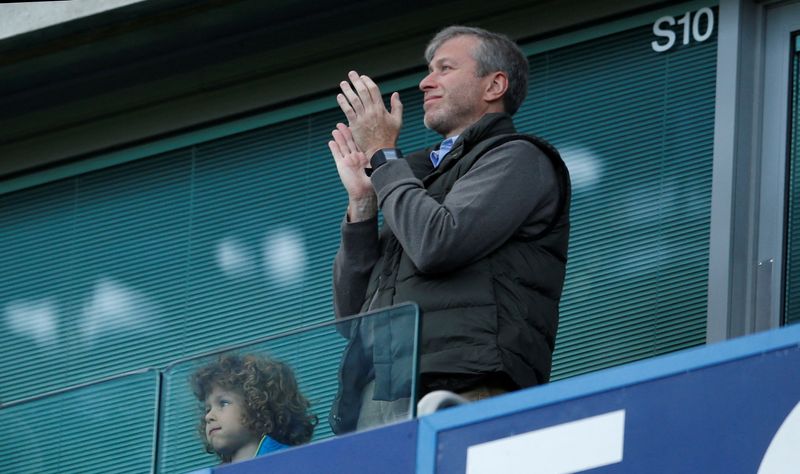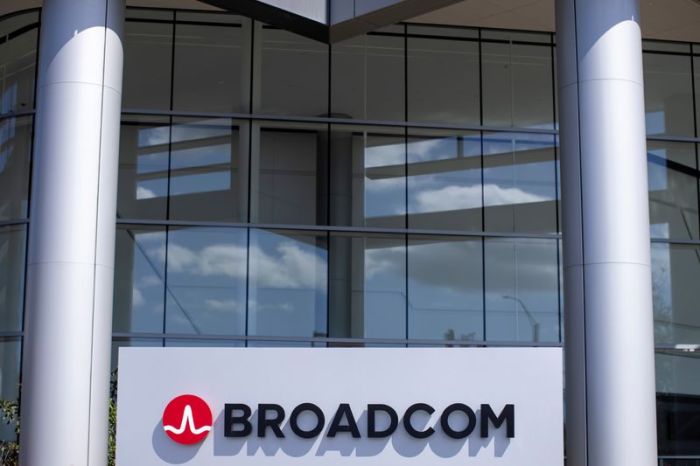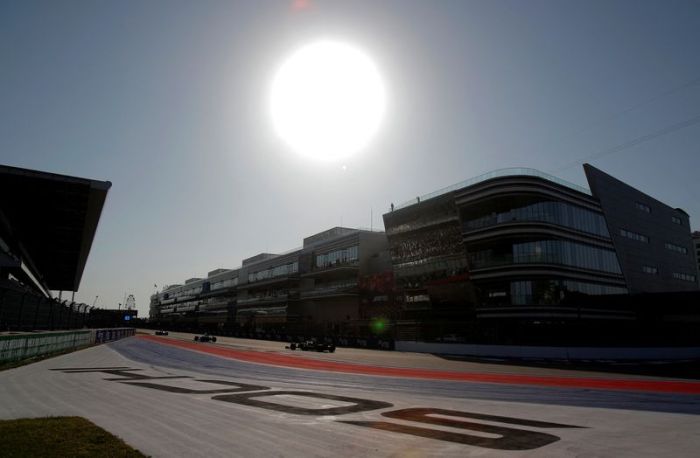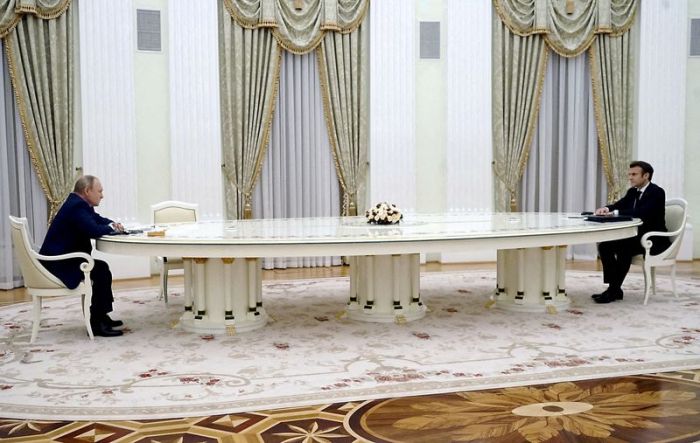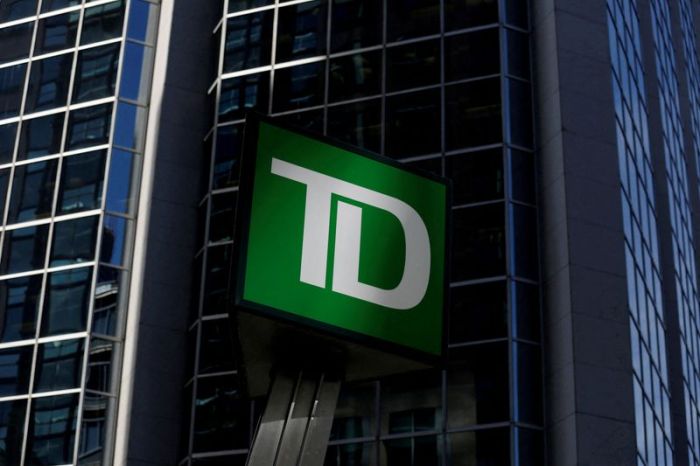LONDON (Reuters) – Britain sanctioned two more Russians on Thursday – industrialist Alisher Usmanov and former deputy prime minister Igor Shuvalov – after criticism that it was taking too long to target people with links to Russian President Vladimir Putin.
Usmanov – an Uzbekistan-born metals and telecoms tycoon who Britain said was worth $18.4 billion – is best known in Britain for his investment in and former sponsorship of Premier League soccer clubs Arsenal and Everton.
Shuvalov is a former aide to Putin who now chairs Russian bank VEB, itself under Western sanctions. As deputy prime minister he led Russia’s successful bid to host the 2018 soccer World Cup.
“For as long as Putin continues his barbaric attack on innocent Ukrainians we will continue to exert every power we have to inflict maximum economic pain on Putin and his war machine,” British Prime Minister Boris Johnson said.
Russia calls its actions in Ukraine a ‘special operation’ that it says is not designed to occupy territory but to destroy its southern neighbour’s military capabilities and capture what it regards as dangerous nationalists – a pretext dismissed by Ukraine and the West as baseless propaganda.
Since Russia launched the invasion on Feb. 24, Britain has imposed sanctions on 11 wealthy Russians plus Putin and his foreign minister Sergei Lavrov, as well as four Belarusian military officials.
Usmanov and Shuvalov have had their British assets frozen, face travel bans, and British citizens and businesses are barred from dealing with them.
The foreign ministry said Usmanov owned a mansion worth 48 million pounds ($64 million) and an estate southwest of London, while Shuvalov owned two luxury apartments in central London worth 11 million pounds.
ABRAMOVICH PRESSURE
Johnson is facing mounting criticism from opposition politicians and some of his own lawmakers for what they say is a slow response on sanctions.
Britain has so far sanctioned fewer people than the European Union, which on Monday imposed sanctions on 26 prominent figures, including oligarchs and people active in the oil, banking and finance sectors.
There have been growing calls for Russian billionaire Roman Abramovich, the owner of Chelsea soccer club, and others to be included in sanctions. But the government has said it must have a solid legal case that their finances are linked to Putin’s administration before sanctioning any individuals.
Abramovich’s spokeswoman declined immediate comment on a Times report on Thursday that he was not facing imminent sanctions. He announced on Wednesday he would sell Chelsea Football Club and donate money from the sale to help victims of the war in Ukraine.
British lawmakers have said any delay in imposing sanctions means their targets can move wealth and assets out of Britain before they are designated.
“The government’s failure to keep pace with the EU and the U.S. on sanctions is allowing Putin-linked oligarchs to salvage hundreds of millions in assets,” said David Lammy, the foreign affairs spokesman for the main British opposition Labour party.
A government source, speaking on condition of anonymity, told Reuters that because of the high bar still required to impose sanctions it was now seeking to change the law.
Only last month, Britain passed legislation to broaden the scope of those who could be sanctioned in the event of a Russian invasion, to allow tough penalties on those close to Putin.
“Legal threats will have no impact on our ability to sanction oligarchs,” Foreign Secretary Liz Truss told Reuters while on a visit to Lithuania. “We are absolutely determined to sanction Russian oligarchs. We have a further list we are working through.”
Anita Clifford, a London-based lawyer who specialises in financial crime, said while there was a low threshold for the designation of sanctions, it still required a proper dossier of evidence or it could be challenged in court, and the government could be sued for large sums.
Ordinarily, the process would take at least a couple of months, she said.
($1 = 0.7498 pounds)
(Reporting by Michael Holden, Andrew MacAskill, William James and David Milliken in London and Andrius Sytas in Vilnius; Editing by Frank Jack Daniel and Alistair Bell)

